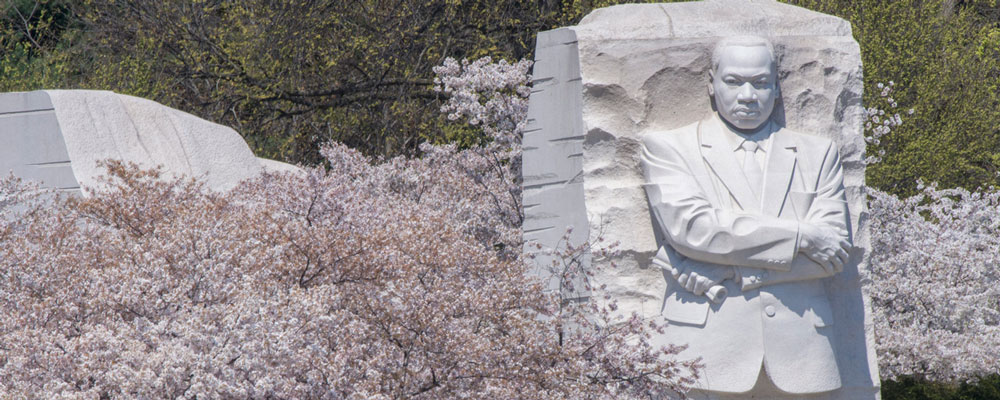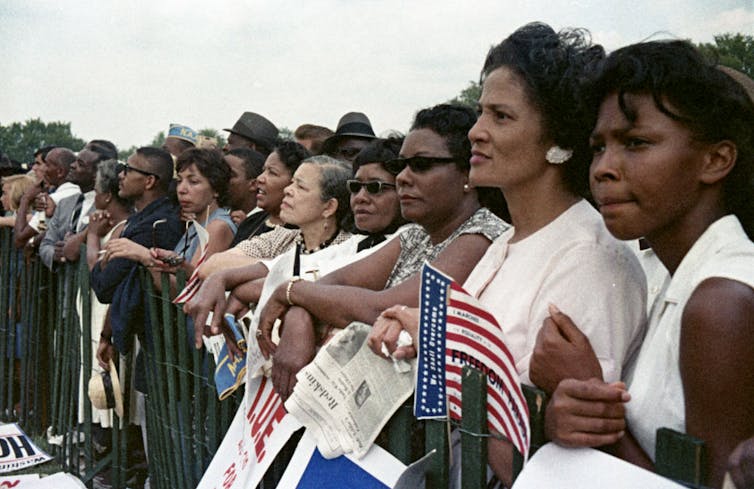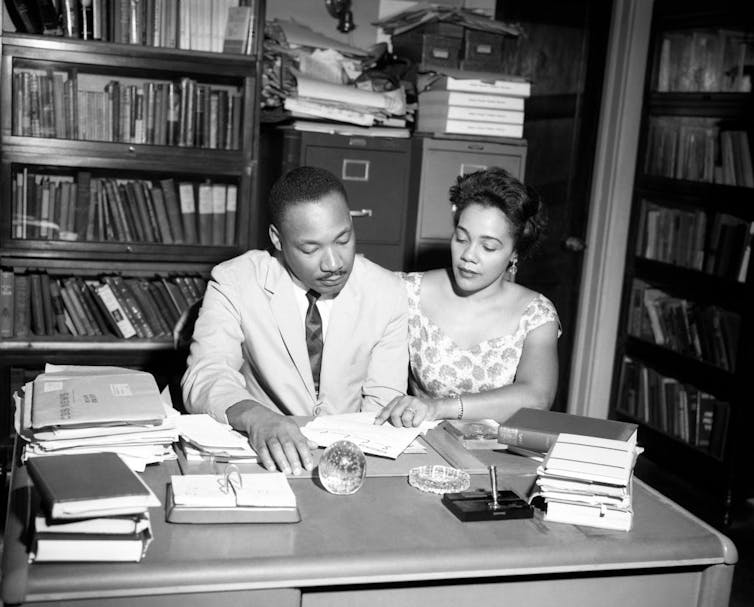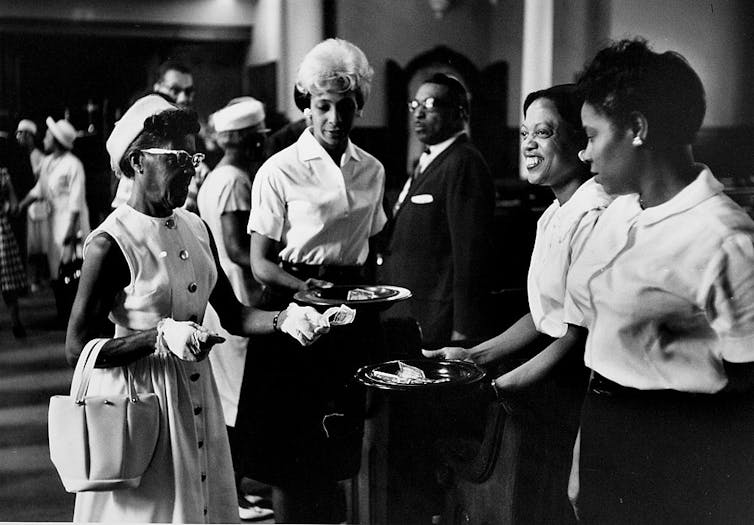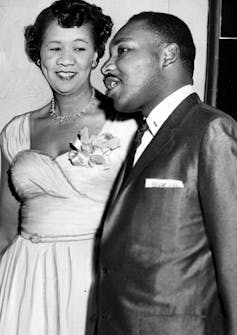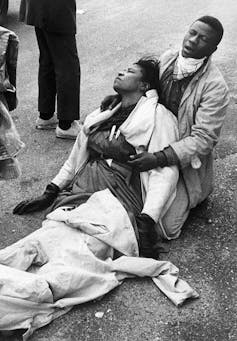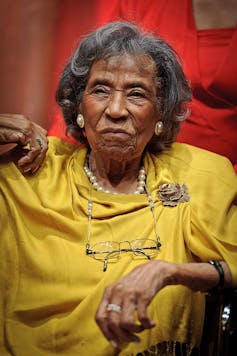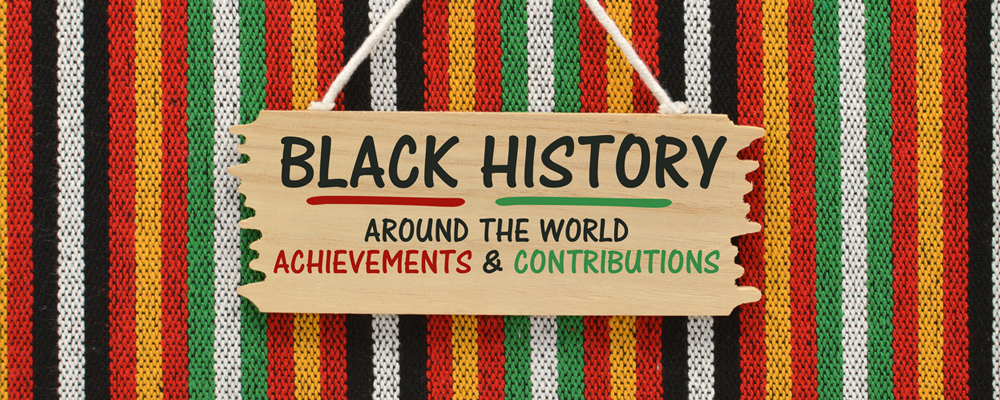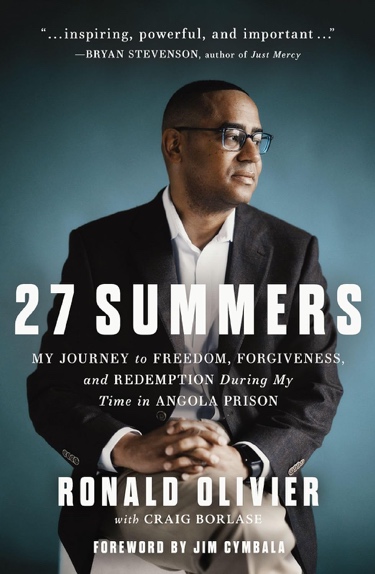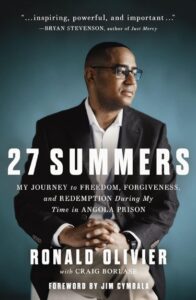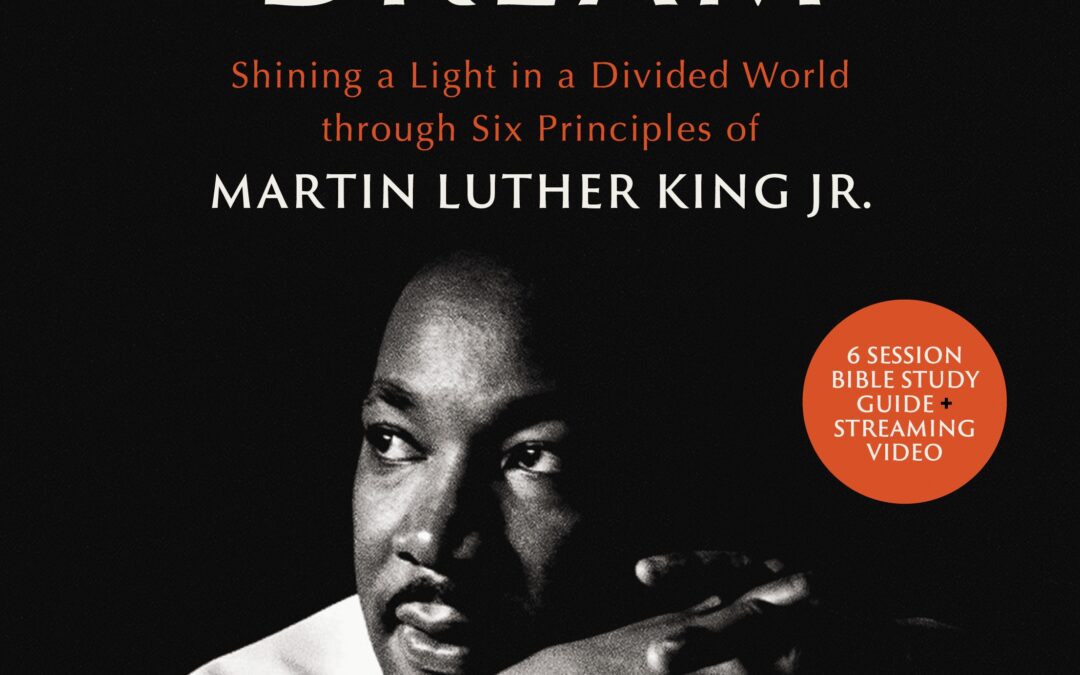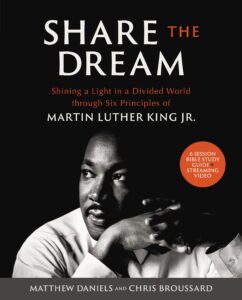 Save & Exit
Save & Exit
August 2023 is the 60th anniversary of the Reverend Dr. Martin Luther King, Jr.’s “I Have A Dream” speech and the historic March on Washington for Jobs and Freedom. UMI (Urban Ministries Inc.) has partnered with Harper Christian Resources, and the K.I.N.G. Movement to honor, celebrate, and share the lessons of MLK through the Share the Dream Project and curriculum. UrbanFaith sat down with the award winning journalist and Fox Sports commentator, K.I.N.G. Movement President, and co-host of Share The Dream Chris Broussard to talk about the project and MLK’s legacy 60 years after the “I Have A Dream” speech. The full interview is above, excerpts are below edited for length and clarity.
—–
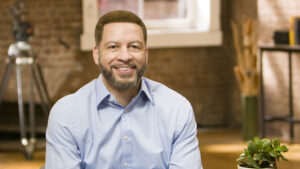
Chris Broussard co-host of Share the Dream
Allen
We are talking about something so special, which is the 60th anniversary of the Reverend Dr. Martin Luther King, Jr.’s “I Have a Dream” speech. It has inspired us and inspire others to honor and celebrate the legacy through a project called “Shared the Dream.” And so today I am here with the commentator, the journalist, the host, the co-host for this project, Mr. Chris Broussard, who has just been someone who’s been at the forefront of helping push the dream forward.
Chris
It’s great to join you, Allen. And wow, thank you for that introduction. I’ll try to live up to it in this interview, but it’s great to be with you guys at UrbanFaith. And this Share the Dream project is something that’s special, something that’s anointed, and something that we do hope and believe can have a great impact in our country.
Allen
In a lot of ways it feels like we see Dr. King as a meme, right? Like it’s just a picture on social media with a quote taken out of context. People don’t even know for the I have a dream speech, that he starts with laying out the problems before he gets to a vision for what we could do together. Can you talk a little bit about what it looks like to have a vision going forward and why it’s so important to learn from our history and address those realities before we rush to the vision that God might have for us being united and being one?
Chris
No, that’s a great question. Because a lot of times you hear talk about racial reconciliation. And to some people, like I said, does that mean a hug? Does that mean, you know, just some superficial gatherings, but not addressing the issues that left us unreconciled and leave us unreconciled? As you said, most people don’t even know that Dr. King addressed those issues before he said, “I have a dream” and all that stuff. And of course, later in his life, he really to some degree was distraught and disheartened when he really looked at the economic differences. And obviously he knew that [before]. But, in the South the racism was so overt that they were addressing those situations. Blacks couldn’t go here; blacks couldn’t go there. You just address those issues. And then we went up to the North and you saw the economic conditions that many Africans Americans were living in. In the North there [wasn’t persistent] legal segregation, but blacks were clearly getting the short end of the stick. It really disheartened him, and he had to rethink and was in the process of even thinking like, “Okay, how are we going to address this?” And he did have ideas and he talked about redistribution of wealth and all that stuff.
I think the key is that, our white brothers and sisters, particularly in the church, have been miseducated on the history of America. All the talk about a great Christian nation, and manifest destiny and the city on the hill. What about the way African-Americans and Native Americans were treated? And so that miseducation informs the way a lot of whites view the racial situation today. And by using a lot of Dr. King’s principles and teaching, like we want to hopefully shed light on how the true racial history of America, as bad as it was, in the past, but also how it impacts us today. How it impacts the disparities you see today and the tension and the distrust that you see today and all the events that we’ve seen in the past few years. All of that is a remnant to some degree of much of the past. The wealth gap. That’s not just because whites have worked hard, and blacks haven’t. It’s not because of that at all. It is because of things like the federal housing administration loans that were given out to mainly overwhelmingly white Americans in the from the 1930s on into the 1960s that built these beautiful white suburbs. The red lining of the African-American neighborhoods that have cost African-American families on average hundreds of thousands of dollars. These are the things [that must be addressed]. It’s not just let’s go have dinner together and be friends. It is let’s address these economic issues that really were created by the racism of the past and address the those. And then [there can] be some real racial unity and we can have some real robust discussions about how we can solve these problems that we have today. So yeah, I think that’s, you know, part of what we’re trying to do with Share the Dream.
Allen
[In this curriculum] you outline the six principles of Dr. King’s legacy beautifully: Conscience, justice, perseverance, hope, freedom, and love.] What principles have you seen stand out in your own life or be most influential to you or what were your favorite ones to share in the series?
Chris
Yeah man, there’s so many. I think to some degree I’ve addressed a little bit of the conscience of really making America in particular, many of our white Christian brothers and sisters aware of the true history of this country. I’ve talked to whites who have talked about city on the hill and the great Christian heritage of America, who have talked about slavery as if it was just a little blind spot. It was just a little mistake. I’m like “No, you understand that the reason America was able to become the greatest superpower we’ve ever seen was on the backs of slavery.” So that is a part of it trying to just awaken that consciousness within white Americans to understand. So, I think that’s the conscience. I could focus more on justice as well. Yes, we see overt acts [of racism] here and there. But a lot of it is subtle. If you if you don’t have a deeper understanding of it and really dig beneath the surface, you can get the wrong idea of the racial situation in America today. [Racist policies] created the wealth gap and all of that, that’s a part of the justice we need to look at. I’ll quickly just throw out one more, the perseverance. Like a lot of time, I think a lot of people have been beaten down, particularly African Americans by the situation in America today, by the persistence of the oppression. Where they have given up, where they just decided, nothing can improve for us overall or for me individually. It can affect your decision making and things like that. Whereas you look back in the day when Dr. King was marching and even before that, in the face of even worse oppression, you did have, I would say, you probably had more perseverance and hope within the Black community than you do today. And I believe a lot of that was because Dr. King and many of the people that were working with him were rooted in Jesus Christ. And when you’re rooted in Christ, no matter how bad things look on the outside, you will have hope. As bad as things look in this country, I do have hope because of the gospel and the transformative power of the gospel and how it can change a person and a people’s outlook on life, worldview, and decision-making behavior, all of that. And I think that’s what our ancestors had. And that’s what gave them the perseverance and the hope through slavery, through Jim Crow. We have more opportunities and freedom today, but many of us lack the same perseverance and hope that our ancestors had. So that’s something I would wanna highlight as well. Why did they have that hope? Let me tap into that reason behind their perseverance.
Allen
Yeah, I mean, they were so rooted in their faith. And I really appreciate this series pointing that out, highlighting that, bringing that to the forefront, because a lot of times people forget that Dr. King was a minister, right? Like he wasn’t just some great speaker and marcher, he was a minister. You got to work with his friend Andrew Young who was there. What are some of the lessons that you feel like people take away from being able to hear from some elders and from some other folks who are part of the project in the video series in the curriculum?
Chris
Well, I think that’s a great question. I think Ambassador Young, he obviously gets accolades and people understand and talk about what he did in the past and his involvement in the movement and all of that. But I don’t think people understand and fully give him the credit for just being how great of a man he is. And to your point, a man of faith. People want to divorce the faith of Dr. King from what he did. They want to divorce [him from his faith]. I could go on and on Frederick Douglass, Harriet Tubman, even Marcus Garvey who [was] a Christian. People want to divorce or [history from faith]. They want to look at these great actions of our ancestors and yet and not look at the sources of their power and the source of their wisdom and the things that they fought for and fought against and stated and so on and so forth. And Ambassador Young is also like that. Ambassador Young is a great man of faith. And I get that we should focus on the other things he talks about and the things he fights for. And everything’s not a religious conversation. But I think it is important that people understand, especially in this day and age, where faith is being marginalized. Christian faith has sustained us as a community and as a people and is now being marginalized, tossed aside, watered down and things like that. It’s important to see in a great man like Ambassador Young that his faith has always been vibrant and to this day is vibrant. And that that’s what motivated him and led him to be able to do and have the strength to do what he did.
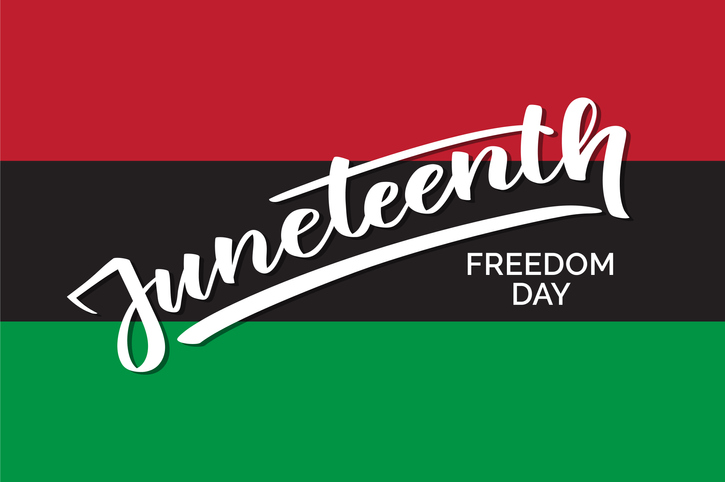
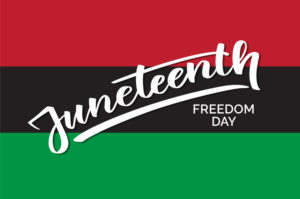

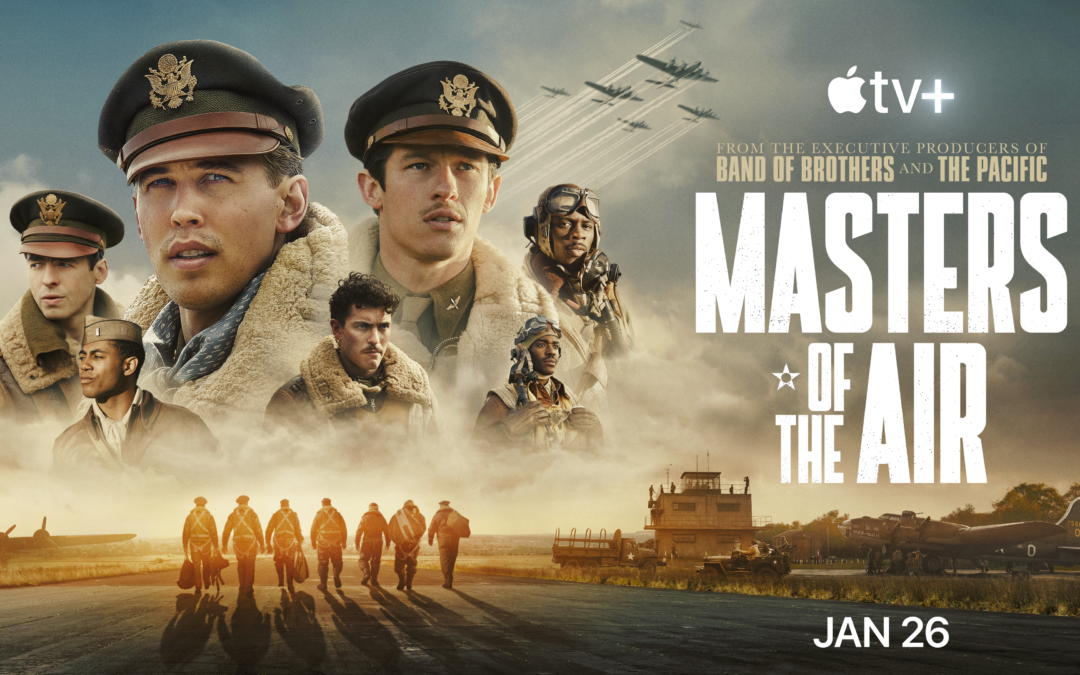

 Allen
Allen
 Allen
Allen